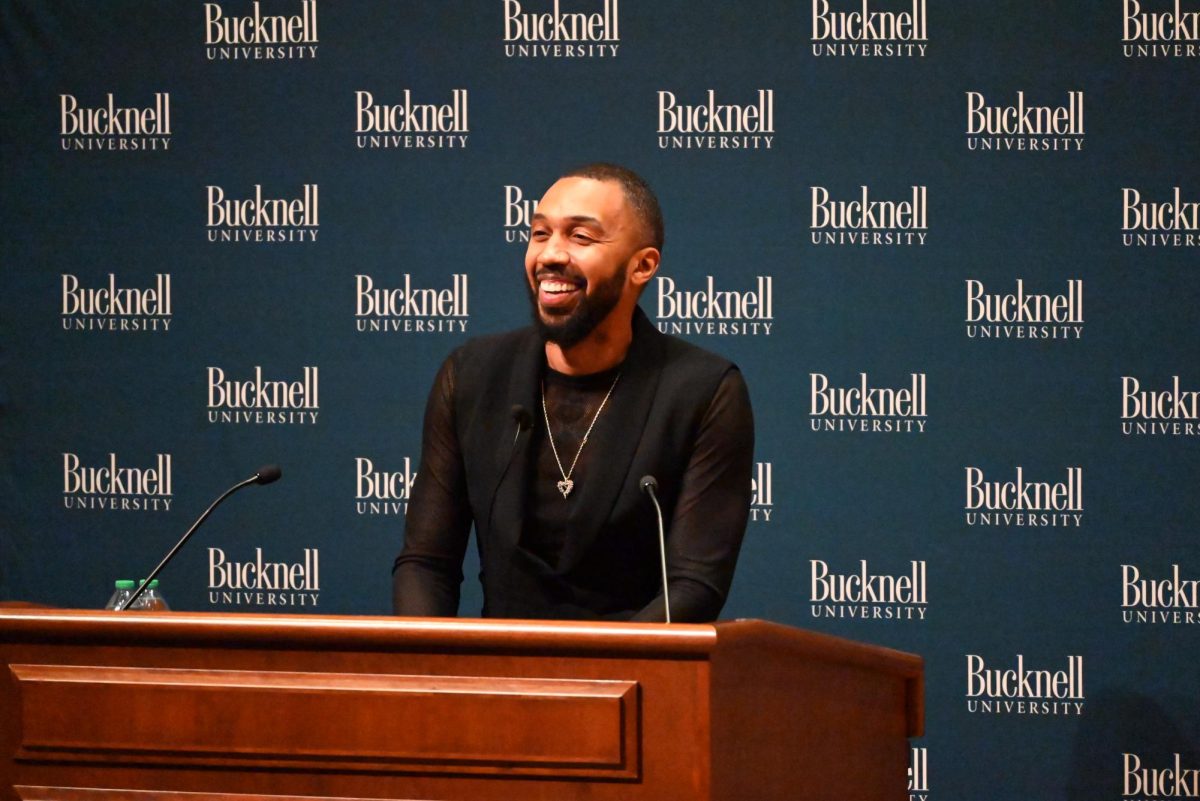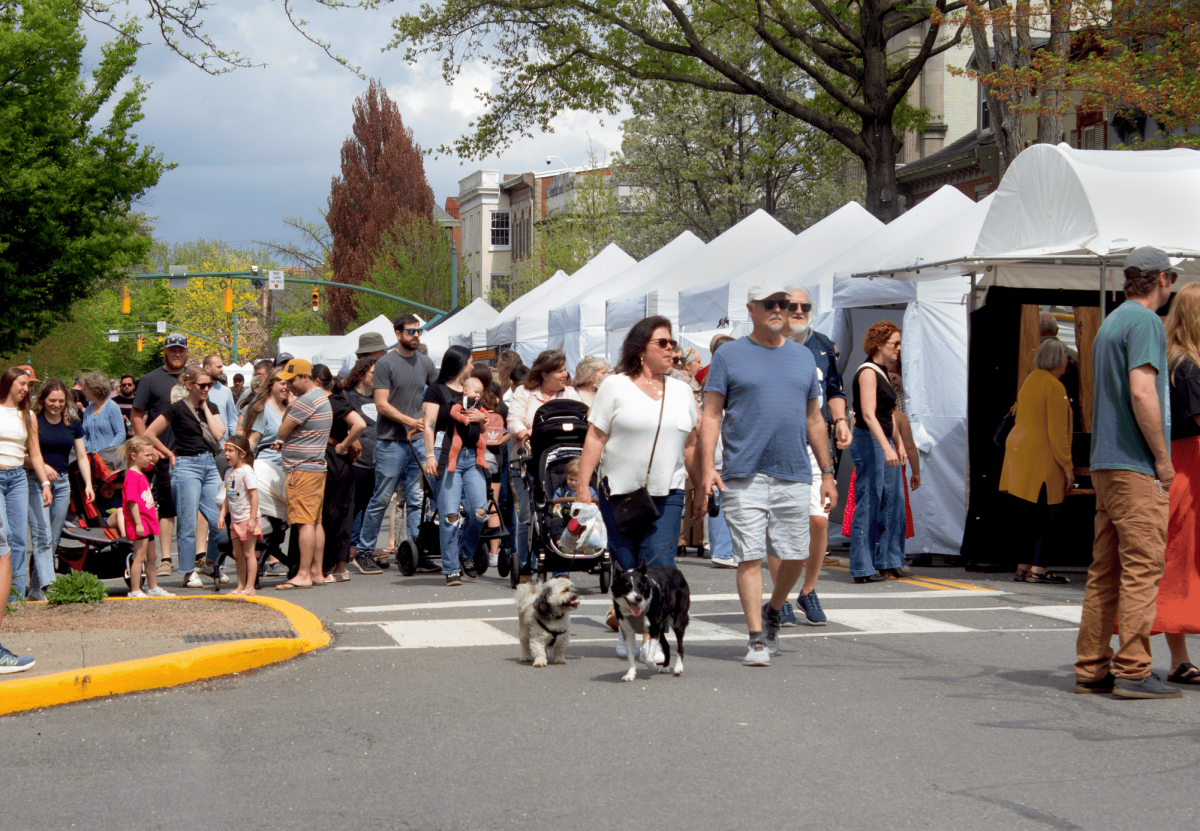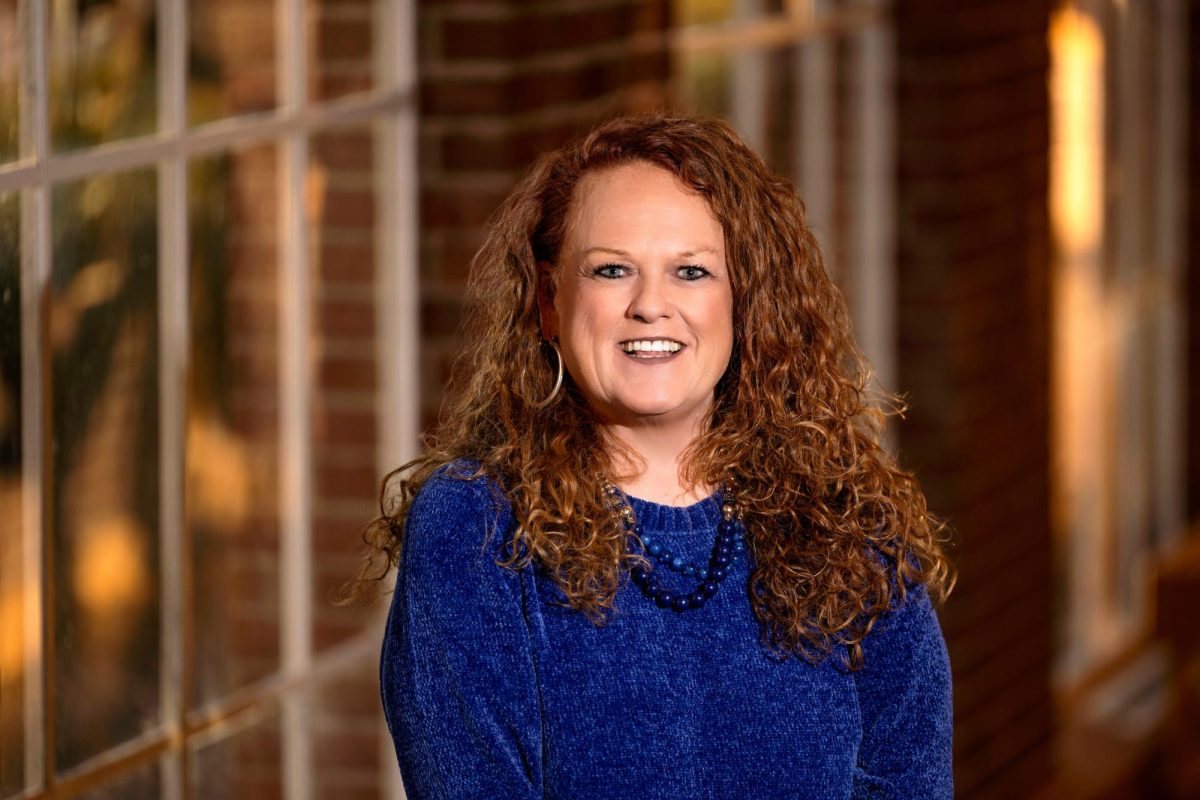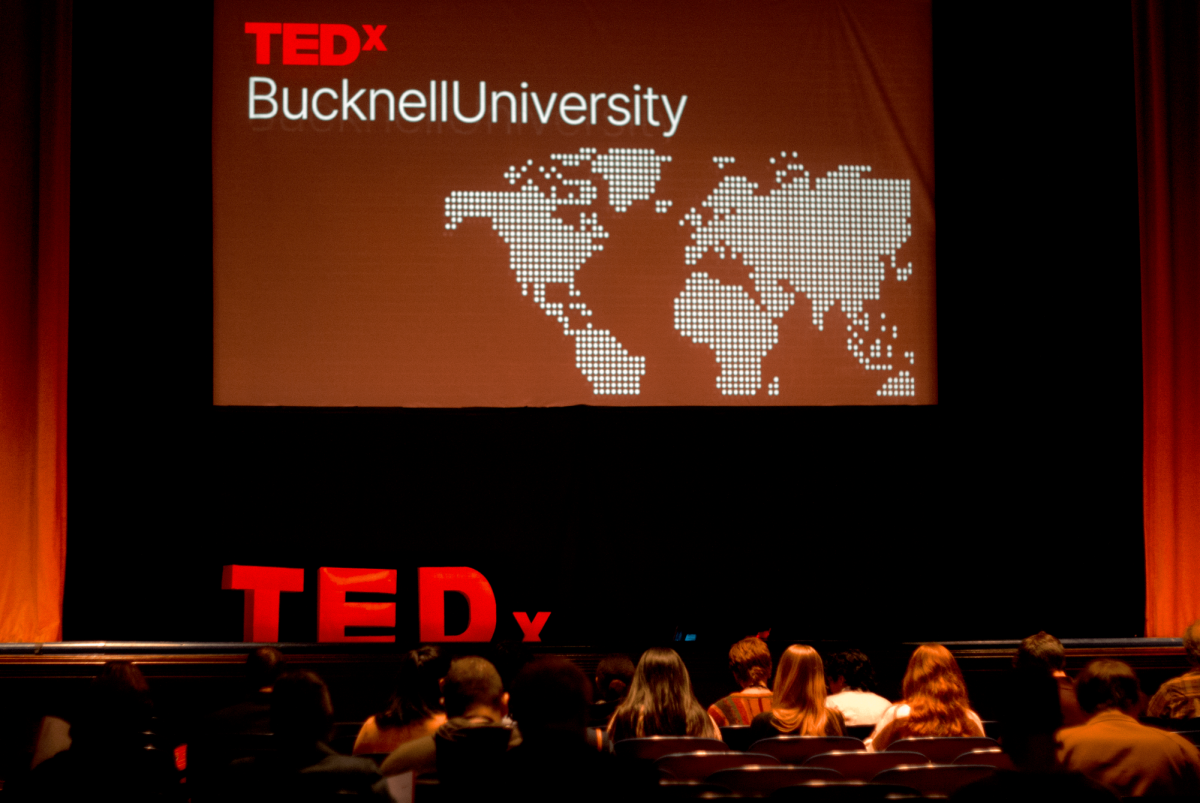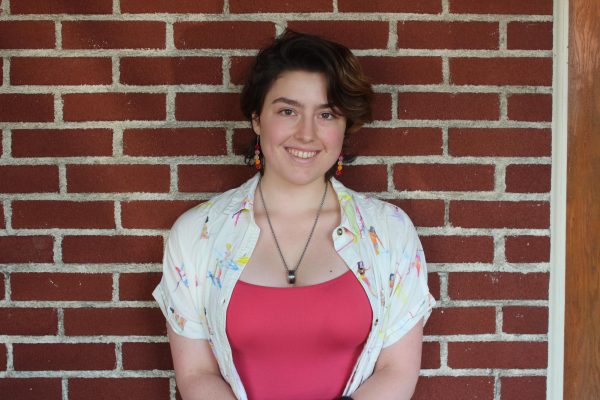Activist and author of the New York Times bestselling memoir-manifesto All Boys Aren’t Blue, George M. Johnson took to the Trout Auditorium stage this past Tuesday evening as the fourth speaker for the Bucknell Forum’s “Freedom of Expression” series. In their speech, entitled “Diverse Storytelling and Why it Matters,” Johnson dove into aspects of their life and childhood that didn’t make it into All Boys, as well as the reality of the long-term, dangerous effects of book-banning in the United States today.
Born and raised in Plainfield, New Jersey, Johnson opened their speech with a rather amusing admission— they already had a connection to Bucknell prior to being invited to the Forum because their hometown high school tried to encourage students to apply to and attend this university. Johnson ended up attending Virginia Union University, but they recall hearing of Bucknell with appreciation.
A significant portion of Johnson’s speech was dedicated to reflecting on the education they received throughout their lifetime, beginning with simplified elementary school history classes and stretching through high school English curriculums. Johnson “grew up at a time when there were no books that represented who [they were],” which, ultimately, is what inspired them to write All Boys Aren’t Blue: “I wrote the book I wish fifteen-year-old me had,” Johnson said, divulging that they wrote as vulnerable and honest as they did because they “knew [they] were writing something that needed to be out there.”
In Johnson’s own words, “stories matter,” but in the current political climate, thousands of stories are being pulled from shelves and banned in the name of “child protection.” The reality is, Johnson mused, “we don’t give enough credit to the youth for how much they know”— and often, books are “tools” students can use to “navigate things they’re already experiencing.” Without books like All Boys Aren’t Blue, many students who would otherwise feel seen and less alone just sink further into isolation and self-hatred.
Johnson said, upon reflecting on school board meetings and courtrooms they’ve had to attend to defend their work, “Sometimes people build up a hatred for [a group of] people they’ve never even met.” Such is the case with the extremist group “Moms for Liberty,” a small but determined force pushing book bans in dozens of states across America. The group’s efforts have catapulted Johnson’s manifesto-memoir to the position of the #2 most-banned book; Johnson is currently the most banned Black author in the country. “Moms for Liberty” has affected dozens of authors in the United States, including Jodi Picoult, who spoke for the Bucknell Forum in late January.
Johnson, like Picoult, has chosen to fight against the rash of bannings spreading across the nation, but it’s not the fight they expected they’d be in the trenches of. Activism has always been a part of Johnson’s life—they had a soup kitchen as a kid, and have done HIV work since 2013—so this scene isn’t as new to them as they’d like, but the scale is unprecedented. “I never thought it would get this large,” Johnson said of the efforts to ban their book, and their efforts to advocate for public education and free speech in turn. “It’s not the badge of honor I was hoping for.”
Students at Bucknell expressed their appreciation for Johnson, their book and their activism during a brief Q&A. When asked for book recommendations, Johnson suggested Toni Morrison’s debut novel, “The Bluest Eye,” describing it as “something else.”
The fifth and final speaker for the Bucknell Forum’s “Freedom of Expression” series will be Jane Fonda on Tuesday, March 19th, in the Weis Center Concert Hall.



















